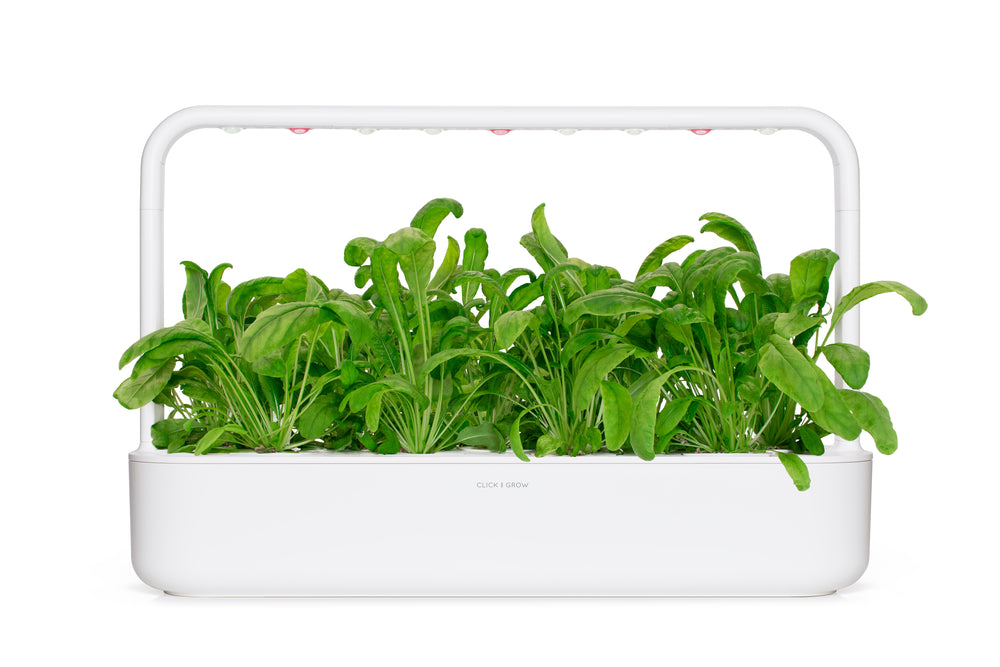News
4 Super Spinach Substitutes to Grow in Your Indoor Garden

Did you know there are some excellent alternatives to spinach that you can grow at home? These lesser known plants have a similar taste to spinach and contain a lot of the same nutrients. With a smart indoor garden, you can grow these any time of year and enjoy them 100% fresh and free from additives.
1. Arugula
Arugula is a much loved ingredient in Mediterranean cuisine among many others. Don’t just limit it to salads! It can be combined with other greens to make healthy smoothies or served with grilled meat. It can also be used to make pesto or enjoyed in sandwiches.
Arugula’s flavour has a slight peppery twist. It contains vitamins A, C, K, calcium, folate, potassium, magnesium and iron. A 10gr cup of Arugula provides 12% of an Adult’s Recommended Daily Allowance (RDA) of vitamin K and 14% of vitamin A.
Serving suggestion: Arugula Pesto
2. Green Chard
Cook your green chard to unleash its mild, sweet flavour reminiscent of spinach. Chard can be sautéed, served with pasta, mixed with stews, used in stuffings or even baked into a savoury pie.
Green chard is a natural source of vitamins A, B, C, dietary fiber, iron, magnesium and potassium. One cup of fresh green chard provides 30mg of magnesium as well as being a reliable source of potassium and iron. One cup of baby leaves (36 gr) provides 16% of an adult’s RDA for Vitamin A, 14% for Vitamin C and 332% for Vitamin K.
Serving suggestion: Garlic Sautéed Swiss Chard
3. Romaine Lettuce
Romaine lettuce has a mild, crunchy texture, making it very popular for salads. It can also be sautéed, braised, blended into smoothies or layered into wraps and spring rolls.
A 35gr cup of romaine lettuce provides 82% of an adult’s RDA for Vitamin K and 14% for vitamin A. It’s also safe to consume in large amounts due to its low nitrate levels.
Serving suggestion: Mega Crunchy Romaine Salad with Quinoa
SHOP ROMAINE LETTUCE PLANT PODS
4. Mibuna
Mibuna is an edible green originally from Japan. It has a gentle mustardy flavour that lends itself perfectly to a variety of dishes. It’s often eaten raw in salads or used in delicious soups and stir fries. You could even combine it with other greens to make a healthy pasta.
Mibuna is a natural source of antioxidants and vitamins. One small cup of fresh mibuna leaves (40 gr) provides 13% of an adult’s RDA for vitamin A and 8% for vitamin C. It's also a reliable source of dietary fiber, calcium and iron.
Serving suggestion: Be creative! Add fresh leaves to a hearty winter soup or mix with a stir-fry. Best of all, enjoy mibuna in baby leaf salad mixtures where its flavour really shines.



